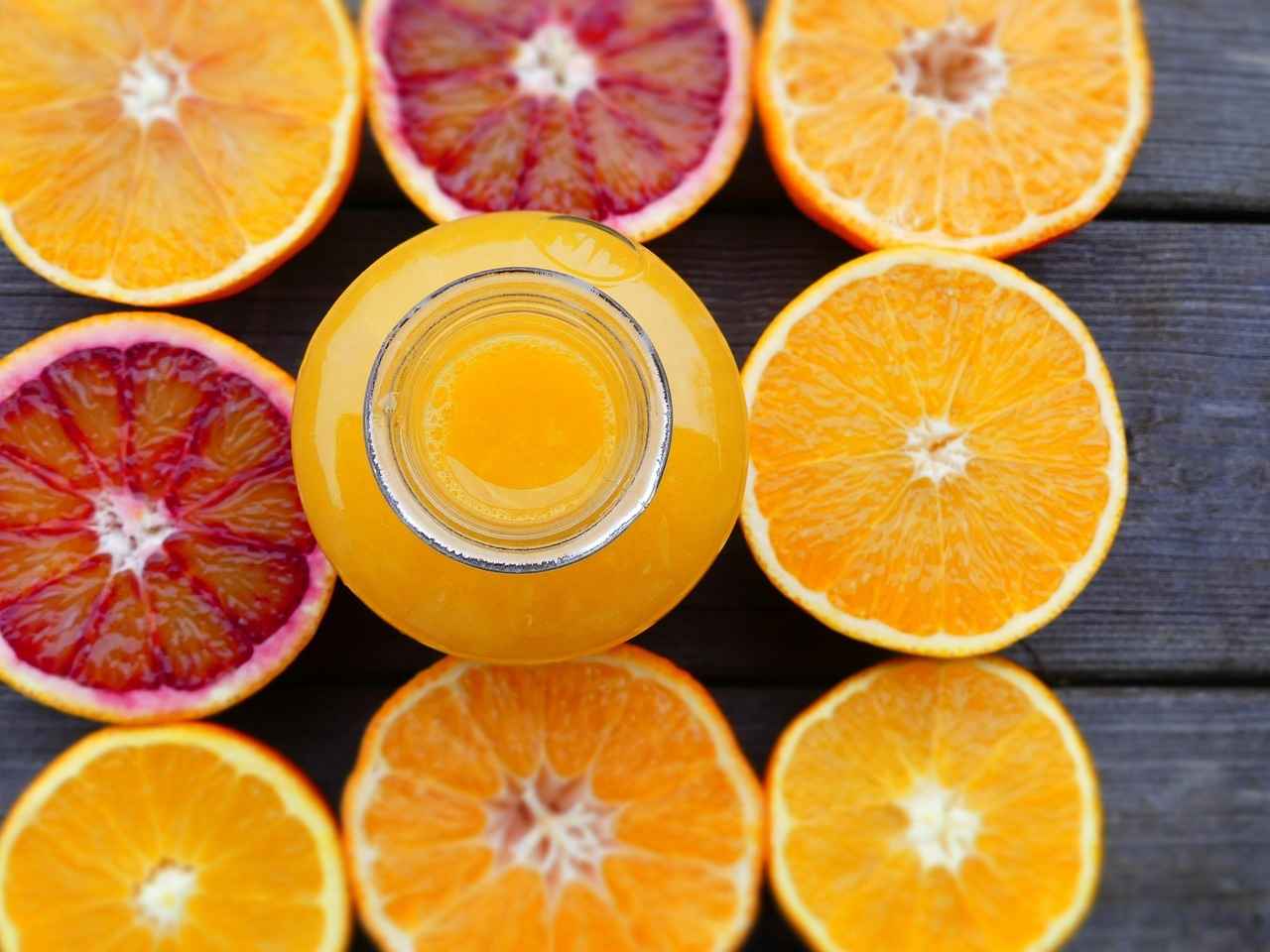Vitamin K2 is increasingly recognized as a vital nutrient for overall health, particularly in relation to bone density and cardiovascular health. While often overshadowed by its more famous counterpart, Vitamin K1, K2 plays a unique role in the body that cannot be overlooked. This article will explore the significant benefits of Vitamin K2, its natural sources, and why it should be a staple in our diets.
What is Vitamin K2?
Vitamin K2, also known as menaquinone, is a fat-soluble vitamin essential for various bodily functions. It is particularly important for calcium metabolism and the regulation of proteins involved in blood clotting and bone health. Unlike Vitamin K1, which is found primarily in leafy greens, K2 is predominantly found in animal products and fermented foods.
Health Benefits of Vitamin K2
- Bone Health: Vitamin K2 is crucial for the activation of proteins that bind calcium to the bone matrix, which helps improve bone strength and density.
- Cardiovascular Health: It prevents the calcification of arteries, thereby reducing the risk of heart disease and promoting better cardiovascular function.
Natural Sources of Vitamin K2
Incorporating Vitamin K2 into your diet is essential for maintaining optimal health. Some of the best sources include:
- Fermented Foods: Natto, a Japanese dish made from fermented soybeans, is one of the richest sources of Vitamin K2.
- Animal Products: Foods such as egg yolks, liver, and certain cheeses also provide substantial amounts of this vital nutrient.
Recommended Daily Intake of Vitamin K2
The recommended daily intake of Vitamin K2 varies based on age, gender, and individual health needs. It is essential to consult with a healthcare provider to determine the appropriate amount for your specific circumstances.
Conclusion: Embracing Vitamin K2 for Better Health
In summary, Vitamin K2 is an unsung hero in the realm of nutrition, offering significant benefits for both bone and heart health. By understanding its importance and incorporating rich sources into our diets, we can enhance our overall well-being and reduce the risk of chronic diseases.

What is Vitamin K2?
Vitamin K2 is a crucial fat-soluble vitamin that plays a significant role in various physiological functions, particularly in blood clotting and bone metabolism. This vitamin is part of the vitamin K family, which also includes vitamin K1, but K2 has distinct properties that make it particularly beneficial for both heart health and bone density.
Vitamin K2, also known as menaquinone, is essential for several bodily functions. Unlike its counterpart K1, which is primarily involved in blood clotting, K2 is crucial for the regulation of calcium in the bones and blood. It helps to activate proteins that play a role in calcium metabolism, ensuring that calcium is deposited in bones and teeth rather than in the arteries.
The health benefits of Vitamin K2 are numerous and include:
- Improved Bone Strength: K2 activates osteocalcin, a protein that helps bind calcium to the bone matrix, enhancing bone density.
- Reduced Risk of Cardiovascular Diseases: By preventing arterial calcification, K2 contributes to better heart health.
Research indicates that Vitamin K2 is vital for maintaining bone mineralization and preventing conditions such as osteoporosis. It facilitates the proper utilization of calcium, making bones stronger and more resilient.
Osteoporosis is a significant health concern, especially among older adults. Vitamin K2’s ability to promote calcium retention in bones can help lower the risk of fractures and maintain bone integrity.
Numerous studies have shown a correlation between high Vitamin K2 intake and increased bone density, highlighting the importance of this nutrient in dietary considerations.
Vitamin K2 plays a protective role in cardiovascular health by inhibiting arterial calcification, which is a key factor in heart disease. Understanding how K2 functions can empower individuals to take proactive steps in heart health.
Incorporating Vitamin K2 into your diet is essential for maximizing its health benefits. Some of the best food sources include:
- Fermented Foods: Natto, cheese, and yogurt are rich in Vitamin K2.
- Animal Products: Egg yolks and liver are excellent sources of K2, contributing significantly to overall intake.
Understanding the recommended daily intake of Vitamin K2 is vital for optimal health. Guidelines suggest varying needs based on age and gender, making it important to tailor dietary choices accordingly.
Different demographics may have unique Vitamin K2 requirements. For example, older adults may need higher amounts to support bone health, while younger individuals might require less.
For those unable to meet their K2 needs through diet alone, supplementation may be necessary. Various forms of Vitamin K2 supplements are available, and consulting with a healthcare provider can help determine the appropriate dosage.
In conclusion, Vitamin K2 is essential for maintaining optimal bone and heart health. By understanding its benefits and incorporating it into daily nutrition, individuals can enhance their overall well-being and reduce health risks.

Health Benefits of Vitamin K2
Vitamin K2 is often overlooked in discussions about essential nutrients, yet it plays a critical role in maintaining overall health. This fat-soluble vitamin is particularly important for bone strength and cardiovascular health. Understanding the myriad benefits of Vitamin K2 can empower individuals to make better dietary choices.
- Enhanced Bone Strength: Vitamin K2 is essential for the activation of proteins that bind calcium in bones. This process promotes bone mineralization and helps maintain optimal bone density, significantly reducing the risk of fractures.
- Osteoporosis Prevention: Osteoporosis is a prevalent condition, especially among older adults. Vitamin K2 has been shown to enhance calcium retention in bones, thereby reducing the likelihood of developing this debilitating disease.
- Cardiovascular Protection: One of the most significant benefits of Vitamin K2 is its ability to prevent arterial calcification. By inhibiting the buildup of calcium in the arteries, it helps maintain healthy blood vessels and lowers the risk of heart disease.
- Improved Insulin Sensitivity: Emerging research suggests that Vitamin K2 may also play a role in improving insulin sensitivity, which is crucial for managing blood sugar levels and reducing the risk of Type 2 diabetes.
- Anti-inflammatory Properties: Vitamin K2 has been linked to reduced inflammation in the body, contributing to overall health and potentially lowering the risk of chronic diseases.
Incorporating Vitamin K2 into your diet can be a simple yet effective strategy for enhancing both bone and heart health. Foods rich in this vitamin, such as fermented products and certain animal products, should be included in your daily nutrition.
In conclusion, the benefits of Vitamin K2 extend far beyond bone health. By understanding its importance and ensuring adequate intake, individuals can significantly improve their overall well-being.
Bone Health and Vitamin K2
Vitamin K2 is increasingly recognized as a critical nutrient for maintaining optimal bone health. Recent research highlights its essential role in bone mineralization and density, making it a vital component in the quest for stronger bones.
One of the primary functions of Vitamin K2 is its ability to activate specific proteins known as osteocalcin. These proteins are responsible for binding calcium in the bones, ensuring that this essential mineral is effectively utilized for strengthening the skeletal structure. Without adequate Vitamin K2, bones may become weak and more susceptible to fractures.
Studies have shown that individuals with higher intakes of Vitamin K2 tend to have significantly better bone density compared to those with lower levels. For instance, a study published in the Journal of Bone and Mineral Research found a direct correlation between Vitamin K2 consumption and a decrease in the incidence of osteoporosis, particularly in older adults.
Moreover, Vitamin K2 works synergistically with other nutrients, such as Vitamin D and calcium, to enhance bone health. While Vitamin D helps in the absorption of calcium from the diet, Vitamin K2 ensures that calcium is deposited in the bones rather than in the arteries, where it could lead to cardiovascular issues.
Incorporating Vitamin K2 into your diet can be achieved through various sources, including fermented foods like natto, dairy products, and certain meats. Understanding these sources and their benefits can empower individuals to make informed dietary choices that support their bone health.
In conclusion, Vitamin K2 is not merely an accessory to bone health; it is a fundamental element that contributes to the strength and integrity of our skeletal system. By prioritizing this nutrient, we can take proactive steps towards preventing bone-related conditions and enhancing our overall well-being.
How Vitamin K2 Prevents Osteoporosis
Osteoporosis is a significant health issue, particularly affecting the elderly population. This condition is characterized by weakened bones, which increases the risk of fractures and other complications. One of the most effective natural defenses against osteoporosis is Vitamin K2. This vital nutrient plays a crucial role in bone health by enhancing calcium retention in the bones, thereby reducing the likelihood of fractures.
Research indicates that Vitamin K2 activates specific proteins, such as osteocalcin, which are essential for binding calcium to the bone matrix. This process not only strengthens the bones but also improves overall bone density. Consequently, individuals who maintain adequate levels of Vitamin K2 are less likely to experience the debilitating effects of osteoporosis.
Furthermore, studies have shown a direct correlation between Vitamin K2 intake and bone mineral density. For instance, a comprehensive study involving postmenopausal women revealed that those who consumed higher amounts of Vitamin K2 had significantly greater bone density than those with lower intakes. This finding underscores the importance of incorporating Vitamin K2-rich foods into our diets.
Natural sources of Vitamin K2 include fermented foods such as natto, cheese, and yogurt, as well as animal products like egg yolks and liver. By including these foods in our daily meals, we can enhance our bone health and reduce the risk of osteoporosis.
In conclusion, Vitamin K2 is an unsung hero in the fight against osteoporosis. By promoting calcium retention in bones and enhancing overall bone density, it serves as a critical nutrient for maintaining skeletal health, especially in older adults. Prioritizing Vitamin K2 in your diet can lead to stronger bones and a reduced risk of fractures.
Vitamin K2 and Bone Density Studies
Numerous scientific studies have highlighted the significant relationship between increased intake of Vitamin K2 and enhanced bone density. This vitamin plays a crucial role in the activation of proteins that are essential for bone health, particularly in binding calcium to the bone matrix. By facilitating this process, Vitamin K2 helps to maintain strong and healthy bones, which is especially important as we age.
One landmark study published in the Journal of Bone and Mineral Research found that individuals with higher dietary intake of Vitamin K2 had a markedly lower risk of fractures compared to those with lower intake levels. This research involved a comprehensive analysis of over 1,000 participants, showing a clear correlation between Vitamin K2 levels and improved bone mineral density.
Another important study conducted in Japan examined the effects of Vitamin K2 supplementation on postmenopausal women, a group particularly vulnerable to osteoporosis. The results indicated that those who received Vitamin K2 supplements experienced a significant increase in bone density over a 3-year period, suggesting that regular intake may be a viable preventive measure against osteoporosis.
Additionally, a meta-analysis reviewing multiple studies concluded that higher Vitamin K2 intake is associated with a reduction in the risk of hip fractures. This finding is crucial as hip fractures can lead to severe complications and decreased quality of life in older adults.
In summary, the evidence supporting the role of Vitamin K2 in enhancing bone density is compelling. With its ability to activate key proteins involved in bone metabolism, incorporating Vitamin K2 into the diet could be a strategic approach to improving bone health and reducing the risk of fractures, particularly in at-risk populations.
Cardiovascular Benefits of Vitamin K2
Vitamin K2 is increasingly recognized for its significant role in promoting cardiovascular health. One of the most critical functions of Vitamin K2 is its ability to prevent arterial calcification, a process that can lead to various heart diseases. Understanding how Vitamin K2 operates in the body can provide valuable insights into its implications for heart disease prevention.
Arterial calcification occurs when calcium builds up in the arterial walls, leading to stiffness and reduced elasticity. This condition can significantly increase the risk of heart attacks and strokes. Vitamin K2 activates a protein called matrix Gla-protein (MGP), which inhibits the calcification process. By binding to calcium, MGP prevents it from depositing in the arteries, thereby promoting a healthier cardiovascular system.
Research indicates that individuals with higher levels of Vitamin K2 in their diets have a lower risk of developing cardiovascular diseases. A study published in the American Journal of Clinical Nutrition found that participants with higher Vitamin K2 intake had a significantly reduced risk of coronary heart disease compared to those with lower intake levels. This finding highlights the importance of incorporating Vitamin K2-rich foods into our diets.
Moreover, Vitamin K2 works synergistically with Vitamin D, enhancing calcium metabolism and ensuring that calcium is directed to the bones rather than the arteries. This synergistic effect is crucial for maintaining overall cardiovascular health.
In conclusion, the protective effects of Vitamin K2 against arterial calcification not only support heart health but also contribute to overall well-being. By understanding its mechanisms and integrating Vitamin K2 into our diets through natural sources like fermented foods and certain animal products, we can take proactive steps toward reducing our risk of heart disease.

Natural Sources of Vitamin K2
are essential for maintaining optimal health. This vital nutrient plays a significant role in bone and cardiovascular health, and incorporating it into your diet can be simple and delicious. Below, we explore various food sources rich in Vitamin K2, making it easier for you to enhance your daily nutrition.
Vitamin K2 is predominantly found in two categories of foods: fermented products and animal-based foods. Understanding these sources can help you make informed dietary choices.
Fermented Foods as a Source
- Natto: This traditional Japanese dish made from fermented soybeans is one of the richest sources of Vitamin K2. A single serving can provide over 1,000 micrograms of K2, which is significantly higher than most other foods.
- Cheese: Various types of cheese, particularly hard cheeses like Gouda and Edam, contain substantial amounts of Vitamin K2. The fermentation process enhances the K2 content, making cheese a tasty option for your diet.
- Yogurt: This probiotic-rich food not only aids digestion but also offers a moderate amount of Vitamin K2. Opt for natural, unsweetened varieties to maximize health benefits.
Animal Products Containing Vitamin K2
- Egg Yolks: The yolk of an egg is a nutrient powerhouse, providing a good source of Vitamin K2. Incorporating whole eggs into your meals can boost your K2 intake while offering other essential nutrients.
- Liver: Animal liver, particularly from grass-fed sources, is incredibly rich in Vitamin K2. A small serving can contribute significantly to your daily needs, making it a nutrient-dense option.
- Meat: Certain meats, especially those from animals raised on pasture, contain moderate amounts of Vitamin K2. Including a variety of meats in your diet can help ensure adequate intake.
Incorporating these foods into your daily meals can help you achieve optimal levels of Vitamin K2. Whether you enjoy a slice of cheese, a serving of natto, or a hearty meal with liver, there are plenty of delicious options to choose from. By prioritizing these sources, you can support your bone and heart health effectively.
Fermented Foods as a Source
Fermented foods are not only delicious but also serve as a rich source of Vitamin K2, which is essential for maintaining optimal bone and cardiovascular health. Among the most notable fermented foods are natto, cheese, and yogurt. Each of these foods offers unique benefits and can easily be incorporated into your daily meals.
- Natto: This traditional Japanese dish made from fermented soybeans is one of the highest sources of Vitamin K2. Natto contains a specific form of K2 called menaquinone-7, which has been shown to improve bone density and support heart health. Adding natto to salads or rice dishes can enhance both flavor and nutrition.
- Cheese: Various types of cheese, especially aged varieties like Gouda and Brie, are excellent sources of Vitamin K2. The fermentation process enhances the bioavailability of this vitamin. Cheese can be enjoyed on its own, in sandwiches, or as part of a cheese platter, making it a versatile addition to your diet.
- Yogurt: Known for its probiotic benefits, yogurt also contains Vitamin K2, particularly when made from whole milk. Incorporating yogurt into breakfast with fruits or granola not only boosts your K2 intake but also supports digestive health.
Incorporating these fermented foods into your diet can be simple. Consider adding natto to your sushi rolls, using cheese as a topping for your favorite dishes, or enjoying yogurt as a snack or dessert. By diversifying your meals with these nutrient-rich options, you can significantly enhance your Vitamin K2 intake.
In conclusion, fermented foods like natto, cheese, and yogurt are excellent sources of Vitamin K2, providing numerous health benefits. Their inclusion in your diet can lead to improved bone density and heart health, making them an important component of a balanced nutrition plan.
Animal Products Containing Vitamin K2
Vitamin K2 is a vital nutrient that plays a significant role in maintaining optimal health, particularly for our bones and cardiovascular system. Among the rich sources of Vitamin K2, certain animal products stand out, notably egg yolks and liver.
Why Choose Animal Products for Vitamin K2?
Animal products are considered some of the best sources of Vitamin K2 due to their high bioavailability. This means that the body can easily absorb and utilize the vitamin from these foods. Below is a list of key animal products that are particularly rich in Vitamin K2:
- Egg Yolks: Egg yolks are not only a source of high-quality protein but also contain significant amounts of Vitamin K2. Incorporating eggs into your diet can be an easy way to boost your K2 intake.
- Liver: Liver, particularly from grass-fed animals, is one of the richest sources of Vitamin K2. It is packed with nutrients and can be included in various dishes.
- Cheese: Certain types of cheese, especially aged varieties, are excellent sources of Vitamin K2. They also provide calcium and protein, contributing to overall health.
- Meat: Various meats, especially fatty cuts, contain moderate amounts of Vitamin K2. Including different types of meat in your diet can help meet your K2 needs.
Health Benefits of Consuming Animal Products Rich in Vitamin K2
Including these animal products in your diet can contribute to improved bone density and cardiovascular health. Vitamin K2 helps activate proteins that bind calcium in bones, which is essential for maintaining strong skeletal structures. Furthermore, it plays a protective role against arterial calcification, reducing the risk of heart disease.
Conclusion
Incorporating animal products such as egg yolks and liver into your diet can significantly enhance your Vitamin K2 intake. This nutrient is crucial for maintaining both bone and heart health, making it essential to consider these foods as part of a balanced diet.

Recommended Daily Intake of Vitamin K2
is essential for maintaining optimal health. This vitamin plays a pivotal role in various bodily functions, particularly in bone and cardiovascular health. Understanding the appropriate intake levels based on age, gender, and health conditions is crucial for maximizing its benefits.
Vitamin K2 intake recommendations can vary significantly. For example, adults generally require around 90-120 micrograms per day, while children may need less, depending on their age. Here’s a breakdown:
| Age Group | Recommended Daily Intake (micrograms) |
|---|---|
| Infants (0-12 months) | 2-3 |
| Children (1-18 years) | 30-75 |
| Adults (19-50 years) | 90-120 |
| Older Adults (50+ years) | 90-120 |
Gender also plays a role in determining the required intake. For instance, women who are pregnant or breastfeeding may need higher amounts of Vitamin K2 to support both their health and that of their baby. It is advisable for these women to consult healthcare professionals for personalized recommendations.
Additionally, individuals with certain health conditions, such as osteoporosis or cardiovascular diseases, might benefit from increased Vitamin K2 intake. Studies suggest that higher levels of this vitamin can help mitigate these conditions, but it’s essential to discuss this with a healthcare provider.
In summary, understanding the recommended daily intake of Vitamin K2 is vital for everyone, especially those in specific age groups or with unique health considerations. By ensuring adequate intake, individuals can harness the numerous health benefits that Vitamin K2 offers.
Age and Gender Considerations
Vitamin K2 is essential for maintaining optimal health, but its requirements can vary significantly based on age and gender. Understanding these differences is crucial for ensuring that everyone receives adequate amounts of this vital nutrient.
- Infants and Children: Young children require Vitamin K2 for proper bone development and growth. It is recommended that infants receive adequate K2 through breast milk or fortified formulas. As children grow, their dietary sources should include foods rich in K2 to support their developing skeletal systems.
- Adolescents: During puberty, the body experiences rapid growth, making Vitamin K2 intake particularly important. Adolescents should focus on consuming foods like fermented dairy products and green leafy vegetables to meet their increased needs.
- Adults: For adults, the recommended intake of Vitamin K2 varies between men and women. Men generally require higher amounts due to greater muscle mass and bone density. Women, especially those who are pregnant or breastfeeding, should ensure they get adequate K2 to support both their health and their baby’s development.
- Older Adults: As people age, their bone density decreases, increasing the risk of osteoporosis. Older adults should prioritize Vitamin K2 intake to help maintain bone strength and reduce fracture risks. Foods rich in K2, such as natto and certain cheeses, should be incorporated into their diets.
In summary, it is vital to tailor Vitamin K2 intake based on age and gender to promote optimal health. By understanding these specific needs, individuals can make informed dietary choices that support their overall well-being.
Supplementing with Vitamin K2
is an important consideration for those who find it challenging to obtain adequate levels through diet alone. While Vitamin K2 is found in various foods, factors such as dietary restrictions, lifestyle choices, and age can impact an individual’s ability to meet their needs. This section aims to explore the different types of Vitamin K2 supplements available and the recommended dosages for optimal health.
Vitamin K2 supplements typically come in two primary forms: MK-4 and MK-7. MK-4 is a synthetic form of Vitamin K2 and is often used in supplements due to its quick absorption rate. In contrast, MK-7 is derived from fermented foods and has a longer half-life in the body, which may provide more sustained benefits.
| Supplement Type | Source | Dosage Recommendations |
|---|---|---|
| MK-4 | Synthetic | 15 mg/day |
| MK-7 | Fermented Foods | 90-200 mcg/day |
When considering supplementation, it is essential to consult with a healthcare professional, especially for individuals with underlying health conditions or those taking medications that may interact with Vitamin K2. Dosage can vary based on individual health needs and dietary intake, making personalized guidance critical.
In addition to the form and dosage, it is important to choose high-quality supplements from reputable brands. Look for products that are third-party tested to ensure purity and potency. Some supplements also combine Vitamin K2 with Vitamin D3, which can enhance its effectiveness in supporting bone and cardiovascular health.
In conclusion, while dietary sources of Vitamin K2 are beneficial, supplementation can be a practical solution for those unable to meet their needs through food alone. Understanding the types of supplements and appropriate dosages can help individuals make informed choices for their health.

Conclusion: Embracing Vitamin K2 for Better Health
In summary, Vitamin K2 is not just another nutrient; it is a critical component for maintaining both bone strength and heart health. As research continues to unveil the extensive benefits associated with this vitamin, it becomes increasingly clear that integrating Vitamin K2 into our diets is essential for optimal health. Understanding its myriad advantages allows individuals to make informed choices that can significantly enhance their overall well-being.
One of the most significant benefits of Vitamin K2 is its role in promoting bone mineralization. By activating proteins that facilitate the binding of calcium to the bone matrix, Vitamin K2 helps to maintain bone density and strength, thus reducing the risk of conditions like osteoporosis. This is particularly important for older adults, who are more susceptible to bone-related ailments.
In addition to its benefits for bone health, Vitamin K2 also plays a vital role in cardiovascular health. It helps to prevent arterial calcification, a condition that can lead to serious heart issues. By ensuring that calcium is deposited in bones rather than in arteries, Vitamin K2 contributes to a healthier cardiovascular system.
To reap these benefits, it is essential to consume adequate amounts of Vitamin K2 through dietary sources. Foods such as fermented products like natto, certain cheeses, and animal products such as egg yolks are rich in this vital nutrient. By incorporating these foods into your daily meals, you can significantly boost your Vitamin K2 intake.
In conclusion, making a conscious effort to include Vitamin K2 in your diet is a proactive step towards enhancing both bone and heart health. By understanding its importance and the foods that provide it, individuals can take charge of their health and well-being, leading to a more vibrant and fulfilling life.







